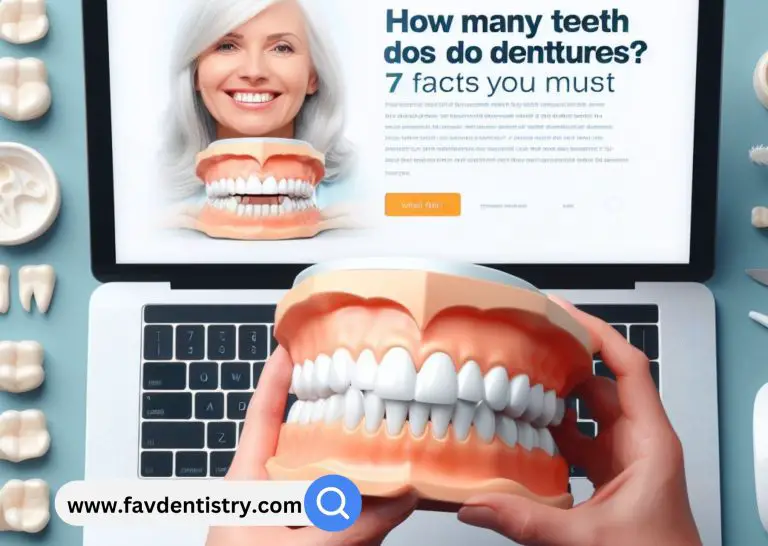Last Updated on 2 days by DR. ALBIN SIPES
Are you considering dentures but worried about the cost? Well, you’re not alone. Many people are searching for affordable dental solutions that won’t break the bank. In this article, we’ll take a look into the future and explore what we can expect for dentures cost in 2024.
With advancements in technology and materials, the dental industry is constantly evolving. As a result, dentures have become more sophisticated, providing a natural and comfortable fit. But what does this mean for the cost?
In 2024, we anticipate that the cost of dentures will become even more affordable. With increased competition among dental providers and improved manufacturing processes, the prices are expected to decrease. However, it’s important to note that the cost will still depend on various factors such as the type of denture, the materials used, and the complexity of the case.
Join us as we delve into the details and explore the factors that influence dentures cost in 2024. Discover how you can save both your smile and your budget with the latest advancements in dentistry.
The cost of dentures can vary based on several factors. These factors include the type of denture, the materials used, and the complexity of the case. Let’s dive deeper into each of these factors to understand how they influence the cost.
Firstly, the type of denture plays a significant role in determining the cost. There are several types of dentures available, including full dentures, partial dentures, implant-supported dentures, and immediate dentures. Full dentures are used when all teeth are missing, while partial dentures are used when only some teeth are missing. Implant-supported dentures provide a more stable and natural fit by attaching to dental implants. Immediate dentures, on the other hand, are temporary dentures placed immediately after tooth extraction. The complexity and customization required for each type of denture can impact the overall cost.
Secondly, the materials used in the fabrication of dentures also affect the cost. Dentures can be made from a variety of materials, including acrylic, porcelain, and composite resin. Each material has its own advantages and cost implications. Acrylic dentures are the most affordable option, while porcelain dentures are more expensive but offer enhanced durability and a natural appearance. Composite resin dentures are a cost-effective alternative to porcelain, providing a balance between affordability and aesthetics. The choice of materials will depend on the patient’s preferences and budget.
Lastly, the complexity of the case can influence the cost of dentures. Some patients may require additional procedures such as tooth extractions, gum tissue grafting, or bone grafting before denture placement. These procedures add to the overall treatment cost. Additionally, patients with unique dental conditions or anatomical variations may require specialized denture designs, which can increase the cost. It’s important to consult with a dental professional to understand the specific needs and associated costs for your individual case.
Considering these factors, it’s clear that the cost of dentures is not a one-size-fits-all scenario. However, advancements in technology and manufacturing processes are expected to make dentures more affordable in the future.
Current Dentures Cost Trends
Before we explore the predictions for dentures cost in 2024, let’s take a look at the current dentures cost trends. This can help us understand the direction in which the cost is moving and what we can expect in the near future.
In recent years, the cost of dentures has been on a downward trend. This can be attributed to several factors. Firstly, advancements in technology have streamlined the denture fabrication process, reducing manufacturing costs. Digital denture design and computer-aided manufacturing have made the production more efficient, resulting in cost savings that can be passed on to the patients.
Secondly, increased competition among dental providers has also contributed to the reduction in dentures cost. With more options available, patients have the opportunity to compare prices and choose a provider that offers affordable yet high-quality dentures. This competition has forced dental clinics to be more price-conscious and strive to provide competitive pricing without compromising on the quality of care.
Lastly, changes in the dental insurance landscape have influenced dentures cost. Many dental insurance plans now cover at least a portion of the cost of dentures, making them more accessible and affordable for patients. This shift has made dentures a viable option for individuals who may have previously considered them financially out of reach.
Considering these trends, it is reasonable to expect that the cost of dentures will continue to become more affordable in the coming years.
Predictions for Dentures Cost in 2024
Looking ahead to 2024, we can make predictions about the cost of dentures based on the current trends and anticipated advancements in the dental industry. While it’s challenging to predict exact prices, we can expect the overall cost of dentures to decrease further.
Advances in denture technology and manufacturing processes are projected to bring down the production costs. As materials become more readily available and techniques become more efficient, the savings can be reflected in the price of dentures. Additionally, innovations such as 3D printing and CAD/CAM technology are expected to revolutionize the denture fabrication process, resulting in cost-effective solutions without compromising quality.
Furthermore, the increasing demand for dentures and the growing number of dental providers entering the market are likely to intensify competition. This competition will likely drive prices down as providers vie for patients’ attention and loyalty. Patients can expect to have more options and competitive pricing, making dentures more accessible and affordable.
It’s important to note that while the overall cost of dentures may decrease, the specific cost for each individual case will still depend on the factors mentioned earlier, such as the type of denture, materials used, and complexity of the case. However, with the projected cost reductions, patients can be more optimistic about finding a denture solution that fits their budget in 2024.
Advancements in denture technology have played a significant role in improving the fit, comfort, and aesthetics of dentures. These advancements have not only enhanced the patient experience but also influenced the cost of dentures.
One of the notable advancements is the use of digital denture design and manufacturing processes. Computer-aided design (CAD) and computer-aided manufacturing (CAM) systems have revolutionized the way dentures are fabricated. The use of digital technology allows for precise and accurate denture design, resulting in better-fitting dentures that require fewer adjustments. This efficiency in the fabrication process can help reduce costs.
Another technological advancement is the introduction of 3D printing in dentistry. 3D printing enables the creation of highly accurate and customized dentures using digital models. This eliminates the need for manual labor and reduces production time and costs. The ability to create dentures directly from digital scans or impressions improves the overall efficiency and cost-effectiveness of the process.
Additionally, advancements in materials have also impacted the cost of dentures. Newer materials, such as high-quality acrylics and composite resins, offer improved durability and aesthetics at a more affordable price point compared to traditional materials like porcelain. These materials provide a cost-effective alternative without compromising on the quality and appearance of the dentures.
As technology continues to advance, the cost of dentures is expected to decrease further. The combination of digital denture design, 3D printing, and innovative materials will likely contribute to more affordable denture options for patients in 2024 and beyond.
While the cost of dentures is expected to become more affordable in the future, it’s still important to plan and budget for this dental investment. Here are some tips to help you budget for dentures without compromising on quality:
1. Research and compare prices: Take the time to research different dental providers and compare their prices for dentures. Look for providers who offer competitive pricing without compromising on quality.
2. Understand insurance coverage: If you have dental insurance, review your policy to understand what portion of the dentures cost is covered. Knowing your coverage can help you plan your budget accordingly.
3. Consider financing options: Many dental clinics offer financing options to help patients manage the cost of dentures. Explore these options and choose one that works best for your financial situation.
4. Plan for additional procedures: Depending on your specific case, you may require additional procedures before or during the denture placement process. Factor in the potential cost of these procedures when budgeting for dentures.
5. Prioritize oral health: Investing in dentures is an investment in your oral health. By prioritizing your oral health, you can prevent further dental issues and potentially reduce future dental costs.
Remember, dentures are a long-term investment in your oral well-being. While budgeting is important, it’s essential to prioritize quality and choose a denture solution that meets your needs.
Affordable Alternatives to Traditional Dentures
While traditional dentures have been the go-to option for many years, advancements in dental technology have led to the development of alternative solutions that offer improved aesthetics, comfort, and functionality at a comparable or even lower cost. Here are some affordable alternatives to traditional dentures:
1. Flexible dentures: Flexible dentures, also known as valplast dentures, are made from a flexible resin material that provides a more comfortable fit compared to traditional acrylic dentures. These dentures are also more durable and lightweight, making them a popular choice for patients seeking an affordable alternative.
2. Snap-in dentures: Snap-in dentures, also known as implant-supported overdentures, combine the stability of dental implants with the convenience of removable dentures. These dentures “snap” onto dental implants, providing a secure fit and eliminating the need for adhesives. While the initial cost may be higher due to the dental implant placement, snap-in dentures offer long-term benefits and can be a cost-effective solution.
3. All-on-4 implants: All-on-4 implants involve the placement of four dental implants in the jawbone to support a full arch of teeth. This innovative solution provides a permanent and natural-looking set of teeth, eliminating the need for removable dentures. While the initial cost may be higher, all-on-4 implants offer long-term value and eliminate the ongoing cost of denture maintenance and replacement.
Discuss these alternatives with your dental professional to determine the best option for your individual case and budget. Each alternative has its own advantages and considerations, so it’s important to weigh the cost and benefits before making a decision.
Dental insurance coverage for dentures can vary depending on the specific insurance plan. Some dental insurance plans provide coverage for a portion of the dentures cost, while others may have limitations or exclusions. It’s essential to review your insurance policy to understand what is covered and what is not.
When reviewing your insurance coverage, consider the following:
1. Coverage percentage: Determine what percentage of the dentures cost is covered by your insurance plan. It’s common for dental insurance to cover a percentage of the cost rather than the entire amount.
2. Annual maximum: Check if your insurance plan has an annual maximum benefit. This is the maximum amount of money your insurance will pay towards dental treatment within a year. If the dentures cost exceeds the annual maximum, you may be responsible for covering the difference.
3. Waiting periods: Some dental insurance plans have waiting periods before they cover major dental procedures like dentures. Review your policy to understand if there are any waiting periods that may impact your coverage.
4. In-network providers: Find out if your insurance plan has a network of preferred providers. Visiting an in-network provider may result in lower out-of-pocket costs compared to out-of-network providers.
Understanding your insurance coverage will help you plan your budget and make informed decisions about your denture treatment. If you have any questions or need clarification, reach out to your insurance provider or dental professional.
How to Find the Best Dentures Provider for Your Budget
Finding the best dentures provider for your budget involves more than just comparing prices. It’s important to consider the quality of care, expertise of the dental professionals, and the overall patient experience. Here are some tips to help you find the best dentures provider within your budget:
1. Research providers: Start by researching dental providers in your area. Look for providers with positive reviews, a good reputation, and a track record of providing high-quality denture services.
2. Schedule consultations: Once you have a shortlist of potential providers, schedule consultations to meet with the dental professionals. During these consultations, ask questions about their experience, the denture options they offer, and their approach to patient care.
3. Request cost estimates: Ask for detailed cost estimates from each provider. This will help you compare prices and understand what is included in the cost of the dentures. Be sure to inquire about any additional fees or hidden costs that may arise during the treatment process.
4. Consider the patient experience: Pay attention to the patient experience and the level of personalized care provided by each provider. A dental clinic that prioritizes patient comfort and satisfaction can enhance your overall denture journey.
5. Ask about financing options: If cost is a concern, inquire about the financing options available at each dental clinic. Some providers may offer flexible payment plans or accept third-party financing options to help you manage the cost of dentures.
By considering these factors, you can find a dentures provider who not only fits your budget but also provides exceptional care and delivers the best possible results for your oral health.
Conclusion: Taking Control of Your Oral Health and Finances
As we look ahead to 2024, the future of dentures cost appears promising. With advancements in technology, increased competition among dental providers, and changes in insurance coverage, the cost of dentures is expected to become more affordable. Patients can anticipate improved quality, better aesthetics, and enhanced comfort without breaking the bank.
When considering dentures, it’s important to understand the factors that affect the cost, such as the type of denture, materials used, and complexity of the case. By researching and comparing prices, exploring alternative options, understanding insurance coverage, and finding the best dentures provider for your budget, you can make informed decisions and take control of both your oral health and finances.
Remember, investing in dentures is an investment in your quality of life. Don’t let cost be a barrier to achieving a confident smile and enjoying the benefits of restored oral function. With the expected cost reductions in the coming years, dentures are becoming increasingly accessible to individuals from all walks of life. Embrace the future of affordable dentures and take the first step towards saving both your smile and your budget.




